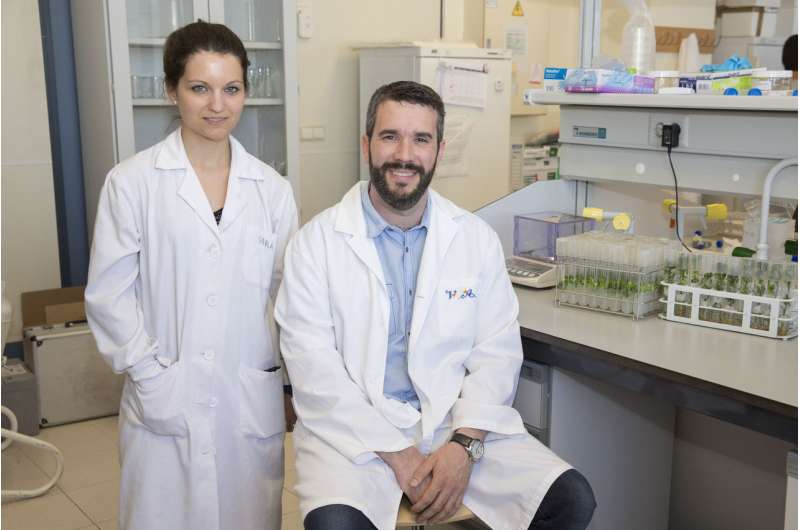Strengthening citric fruit to better resist climate change

Research of the Department of Agricultural Sciences and the Natural World of the Universitat Jaume I in Castellón, Spain, has identified the genes within citric fruit that biotechnology could improve to fight climate change. Work spearheaded by professor Vicent Arbona is progressing in the understanding of the signaling pathway of a plant hormone that will make plants more resistant to stress by flooding. Conclusions of the research have been published in Plant Molecular Biology.
One of the negative environmental conditions that will worsen with the effects of global warming is the flooding of farmland due to torrential rain. "We have studied in the laboratory a plant hormone, abscisic acid or ABA, which is key to regulating tolerance to adverse environmental conditions by plants, and we have observed that there are specific hormonal and molecular responses to stress due to flooding of the substrate," explains Arbona, member of the Ecophysiology and Biotechnology Investigation group.
Researchers at the UJI have identified genes associated with the signaling mediated by the hormone and cloned them – removing and isolating them from the plants in order to study them more in-depth. "What was especially relevant from a basic research standpoint was that, for the first time, the descent in levels of a plant hormone compared to control values as an answer to environmental stress could be a physiologically significant response—and data points in this direction," adds Vicent Arbona.
This plant hormone's response, on a biochemical level, seems to be controlled and specific for this type of stress, as well as being specific to the roots, which are in direct contact with the flooded land. On the other hand, on a molecular level, researchers find that there is a specific response tied to the hormone levels within the tissue, meaning that the plant could tell which type of stress it is being subjected to, and therefore induce the most suitable physiological responses to fight it.
The next step in this line of investigation, already in development, is to learn how cellular responses vary, on a molecular level, among roots of flooded plants when the hormone is not present, which would make it possible to create a response model where this signaling path would play a key role. "It is worth noting," says Arbona, "that this work is being performed with woody crops such as citric fruits, which are hard to handle in a laboratory, but have the advantage that the results are easily extrapolated to real life conditions." Furthermore, basic knowledge on how this signaling path is organized and its key role in plant resistance to substrate flooding is the first step towards the biotechnological production of citric fruits that are more resistant to this type of stress.
More information: Vicent Arbona et al. Depletion of abscisic acid levels in roots of flooded Carrizo citrange (Poncirus trifoliata L. Raf. × Citrus sinensis L. Osb.) plants is a stress-specific response associated to the differential expression of PYR/PYL/RCAR receptors, Plant Molecular Biology (2017). DOI: 10.1007/s11103-017-0587-7
Provided by Asociacion RUVID



















